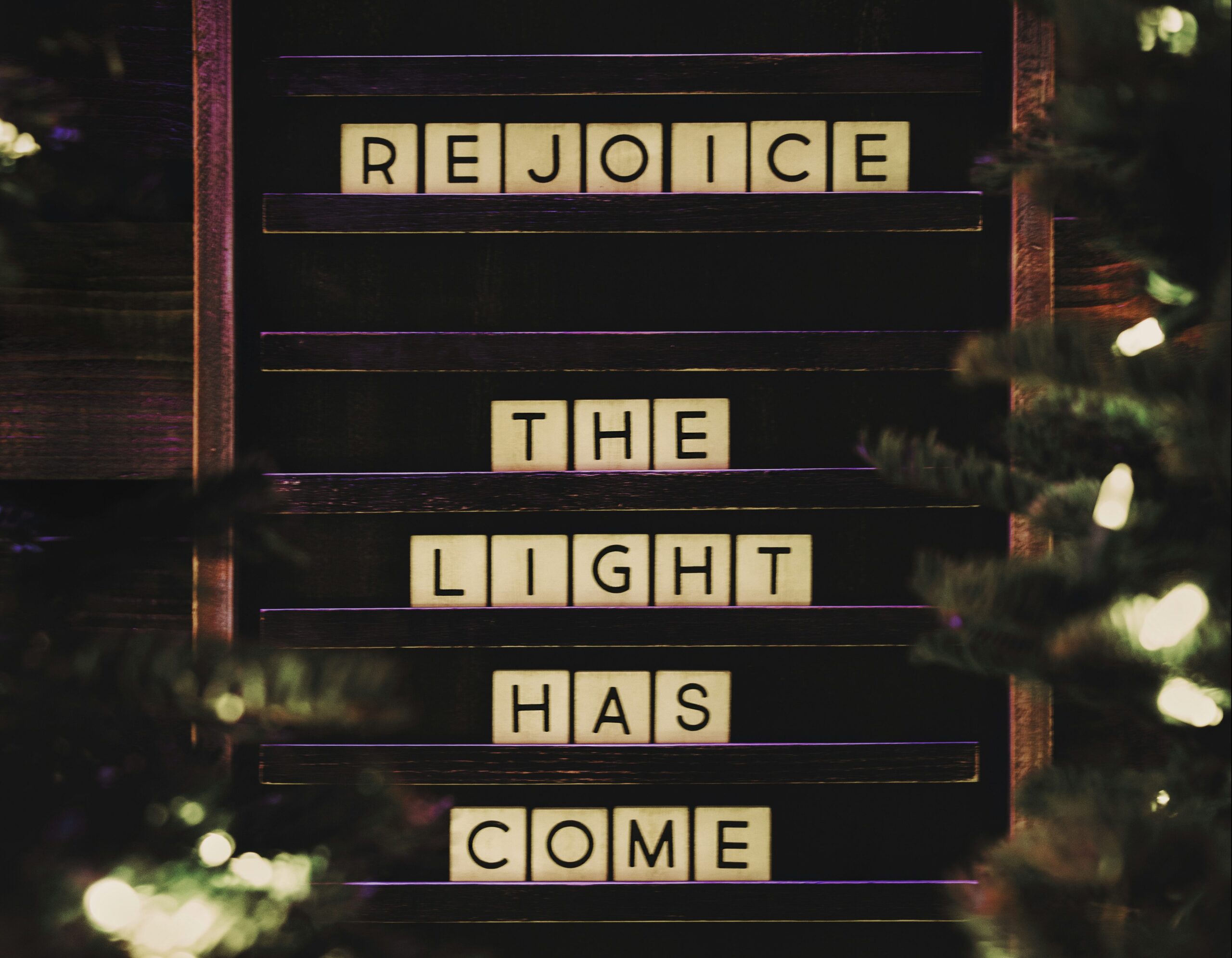Isabelle Hamley, author of our 2024 Advent book Embracing Humanity, shares a special reflection for the Christmas season.
22 December 2024
Light in the darkness
I love Christmas. I have often been told that, as a vicar, the highlight of my year should be Easter. And Easter is good. Very good. But Christmas… Christmas is just wonderful!
When I say I love Christmas, people often think of the sentimental picture that Dickens created, with games and trees and good cheer. And so, bah, humbug. Don’t put you decorations up too early, don’t go for sentimentality, don’t play into commercialisation. The first Christmas was simple and spoke into poverty and oppression and small, invisible spaces.
All of this is true… and yet should one approach necessarily trump the other? I love the extravagant joy of Christmas; and yet together with it, I can never shake a profound sadness for the places of the world where, this year as in many before, the prayer of many will be ‘How long, O Lord?’ This year in Bethlehem and Nazareth, Christmas will be full of tears, as well as tenacious hope that refuses to bow to the idea that the world is overcome by shadows. ‘The light came in the darkness, and the darkness has not overcome it’, John tells us.

John tells us: ‘The light came in the darkness, and the darkness has not overcome it.’
A story of truth
Christmas is wonderful – but not because it is an escape from the world into a short-lived fantasy of mulled wine and mince pies for those who can afford them. Christmas is wonderful because it is deeply, profoundly, achingly incarnated.
Christmas speaks into every aspect of the life of the world and its people: into war and conflict, into economic inequalities and social privilege and disadvantage, into the joy of new life and the fear of death coming so soon on its heels.
The Christmas story is not a beautiful myth to tell with wistful eyes. It is a story of truth, a story that lays bare the utter brokenness of our world: people look for God in all the wrong places; wealth and privilege lead the magi astray in their first attempt; a people, Israel, is oppressed by another, and the might of empires threatens the lives of all those who dare to defy its rules. In the biblical story, the nativity, the adoration of the child, the magi, are quickly followed by the murder of Bethlehem’s children and the holy family becoming refugees in Egypt.

Christmas speaks into every aspect of the life of the world and its people: war and conflict; economic inequalities; social privilege and disadvantage; the joy of new life and the fear of death.
God, present yet hidden
There is joy and sorrow, hope and fear, wonder and grit, and one emotion does not trump, or erase, or collapse the other. Christmas is all those things. It holds together the extremes and challenges of human life and says, God comes within it all. God came on Christmas Day to inhabit a world where infant and maternal mortality were sky high, where the life of the child was threatened by the empires and powers of the day, and where parents loved their child and brought him up in the best traditions of faith that had been handed down to them.
And of course, God had come before Christmas: God came as the child began growing within Mary, before it even kicked and became visible in any way. God was present yet hidden, working for the people of the world while they obliviously went about their business.
And maybe this is the most wonderful thing about Christmas: the idea that God is at work in surprising places, in places where we cannot see God, and has been at work long before we ever become aware of it. God is still at work today: just as he was at work long before Christ came, he has been at work ever since as Emmanuel, God with us.
We cannot treat Christmas as simply an escape, because it would fundamentally change its meaning. But neither do we need to take our present culture out of Christmas. Christmas is about incarnation: about God-with-us, about God coming into history, into humanity and taking on flesh.
It is easy to bypass the depth of what this means. Jesus became not just part of the human race; the God of everything – the king of the universe, of everything and everywhere – shrank himself exponentially to a particular, single point in time and place, one person, profoundly part of the world, of a family, of a people, of a tradition. Jesus was Jewish through and through. He was a first-century person through and through. Yes, of course, he also challenged the biases, inequalities and distortions of his time. But he did so from within.

We cannot treat Christmas as simply an escape; but neither do we need to take our present culture out of Christmas.
The call of Christmas
And so as I contemplate Christmas in the world today, I wonder: what does it mean to inhabit this world faithfully? Not to try to escape it through reducing Christmas to a fairytale, nor try to escape its humanity by denying the cultures and traditions we are part of.
The call of Christmas is to be truthful about our world – and the truth is that it is irretrievably broken and in need of a saviour and that God loves our world so immensely, so profoundly, that God has already sent a Saviour. The truth is that our world is full of suffering and misery and full of joy and promise. We are called to hold these things together and see God at work within them – and join in.
So this Christmas, I will be praying for my dear friends in the Middle East and for other places of the world where children’s presents will be more bombs and Christmas dinner absent, and I will celebrate the coming of Christ who is the only one who can really help us out of the mess we have got ourselves into. I will be getting presents for loved ones, and enjoy the look on their faces when they see that I know them and spent time and care over choosing gifts, and I will donate to humanitarian efforts and charities. I am too small and limited to be the saviour of the world, to do as much as the world needs, or respond to every cause that weighs on my heart. But I will do what I can, and rejoice that the world does have a Saviour big enough for the task – and welcome him as we usher in the most wonderful time of the year.

